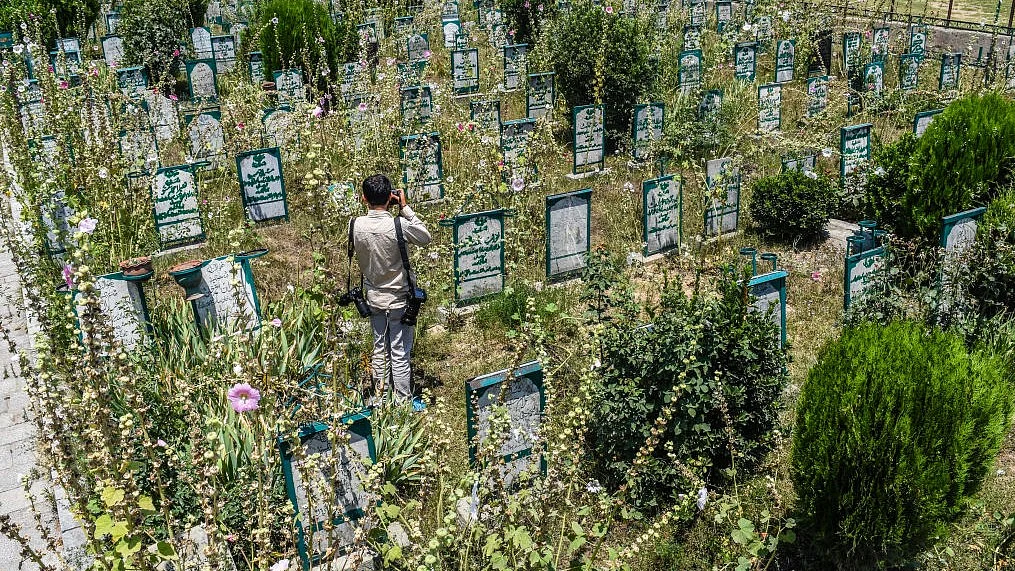Kashmir’s grave stone business rises as killings become new normal
Not since the troubled 1990s, say makers of Kashmir’s wafaat kaen—or grave stones—has demand for their services been so high as it is now

Each time a new customer walks into his shop, Mohammad Amin feels a searing pain in his heart. After offering him a glass of water, Amin commiserates with his customer and jots down the details of his order: name, address and date of death.
A sad smile flickers on the tanned face of the septuagenarian Amin, one of several grave stone makers in Athwajan, Srinagar, as he talks about the considerable increase his business has witnessed over the past two years. “As the graph of violence shot up unprecedentedly during the last two years, this business saw a significant increase” says Amin, gesturing towards a tomb stone.
Since 2016, the Kashmir valley, particularly its southern parts, has been a powder keg. According to Kashmir-based human rights group Jammu and Kashmir Coalition of Civil Society (JKCCS), 145 civilians and 138 militants were killed in 2016.
The annual report of the Ministry of Home Affairs for 2017-2018, released on April 18, 2018, said that Jammu and Kashmir recorded a 166% rise in civilian killings, while there was an increase of 42% in killings of militants in 2017, compared to 2016.
Amin claims that in the past 30 months, he has sold as many as 250 grave stones, with all his customers being the family members of those who were devoured by violence.
“This figure is of only those people who lost their lives to conflict in one or other way. The list includes the militants, civilians and policemen” he says.
While the rates are fixed and there are slim odds for haggling, the wafaat kaen makers have ratcheted down the costs for the victims of violence. “We charge them as minimum as possible. We after all are the part of same society and have ourselves been the victim of conflict in way or the other over the past 28 years of turmoil in Kashmir,” said Ahmad
A few shops down the road in the opposite direction is the outlet of another grave stone maker, Waseem Ahmad. 28-year-old Ahmad also says there has been an increase in the sale of grave stones since 2016. “In the last six months, I have sold more than a dozen grave stones” says Ahmad, adding that people, usually from south Kashmir where violence is comparatively higher than other parts of the valley, form his customers.
A grave stone, locally called ‘wafaat kaen’, comes in the form of granite or marble plaques and usually cost ₹1,300-1,500, depending upon the number of words or lines etched on it. The details which are usually engraved on the tomb stones usually include a brief bio of the deceased and a verse from Holy Koran. In some cases, couplets from classic religious poems are also etched.
While the rates are fixed and there are slim odds for haggling, the wafaat kaen makers have ratcheted down the costs for the victims of violence. “We charge them as minimum as possible. We after all are the part of same society and have ourselves been the victim of conflict in way or the other over the past 28 years of turmoil in Kashmir,” said Ahmad.
An elderly grave stone maker of the area, who does not wish to be named, sees the current situation as a throwback to the troubled 1990s. “Back then, we would make grave stones in the same increasing numbers as we do nowadays,” he said.
Follow us on: Facebook, Twitter, Google News, Instagram
Join our official telegram channel (@nationalherald) and stay updated with the latest headlines